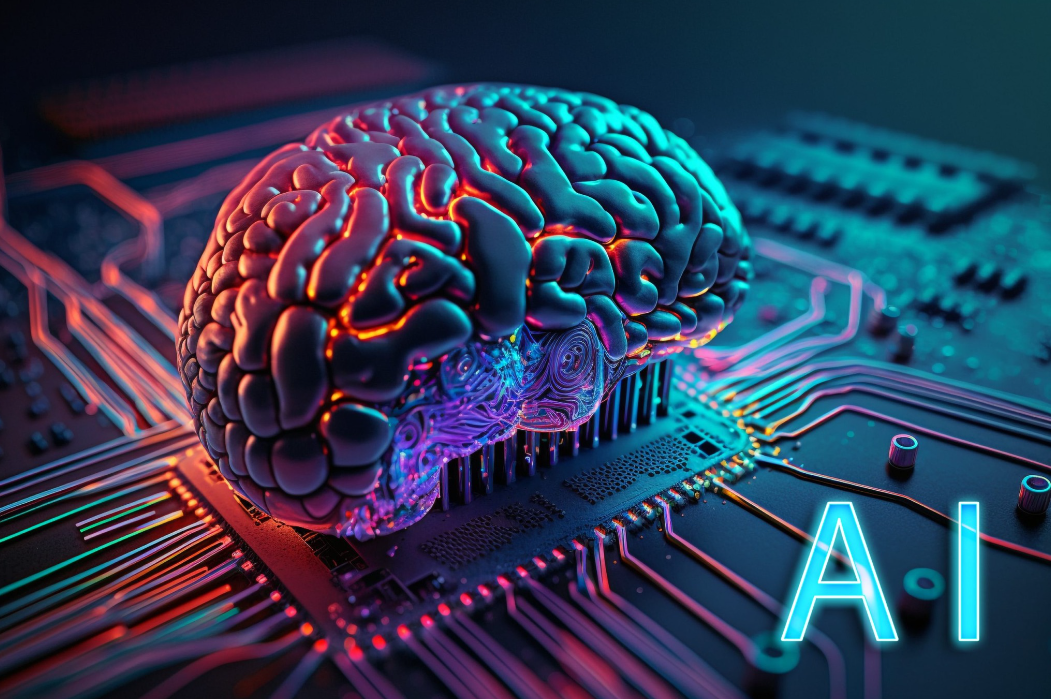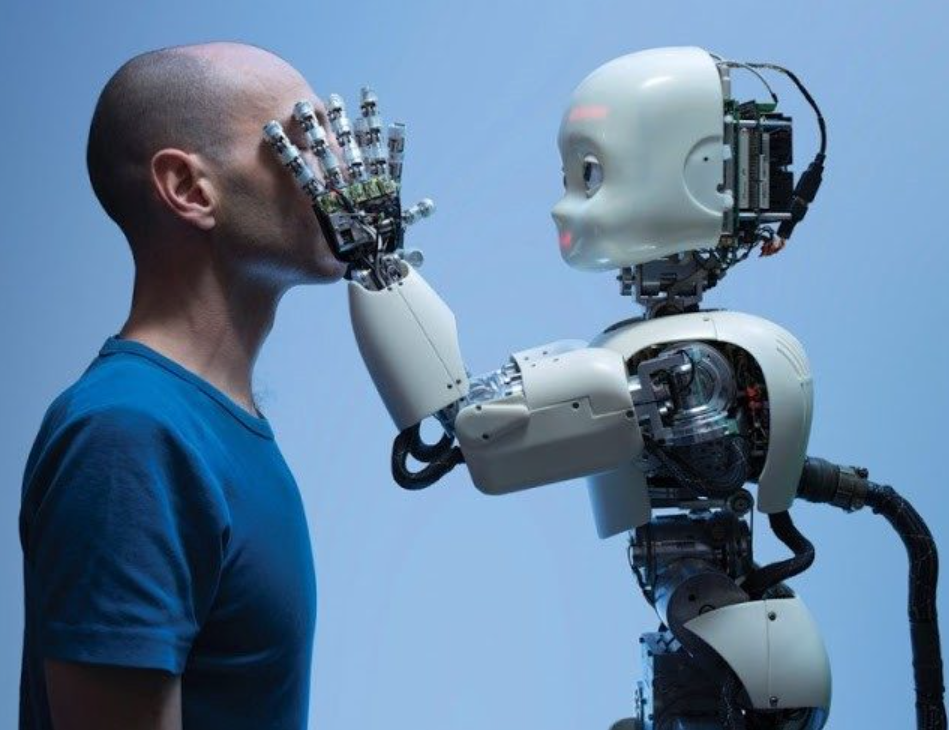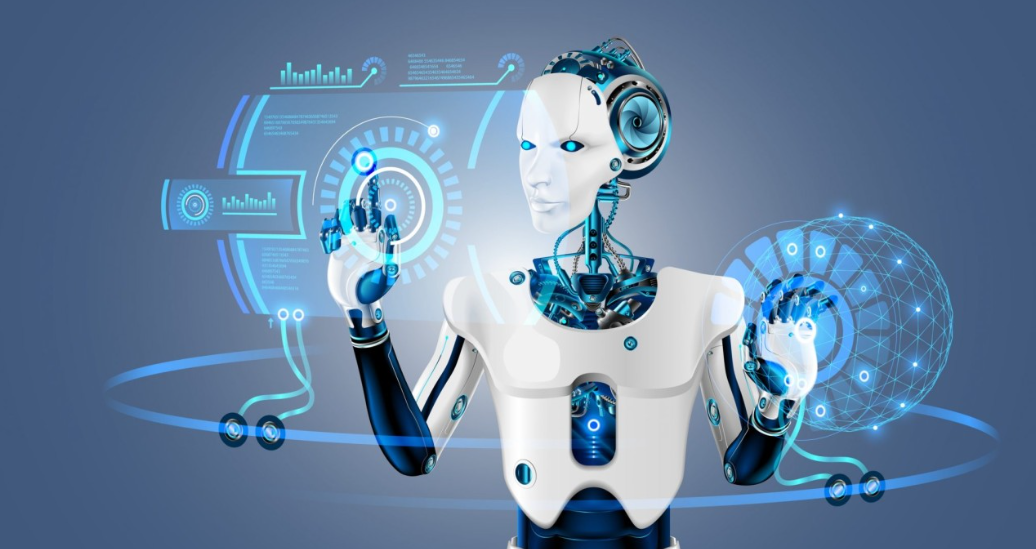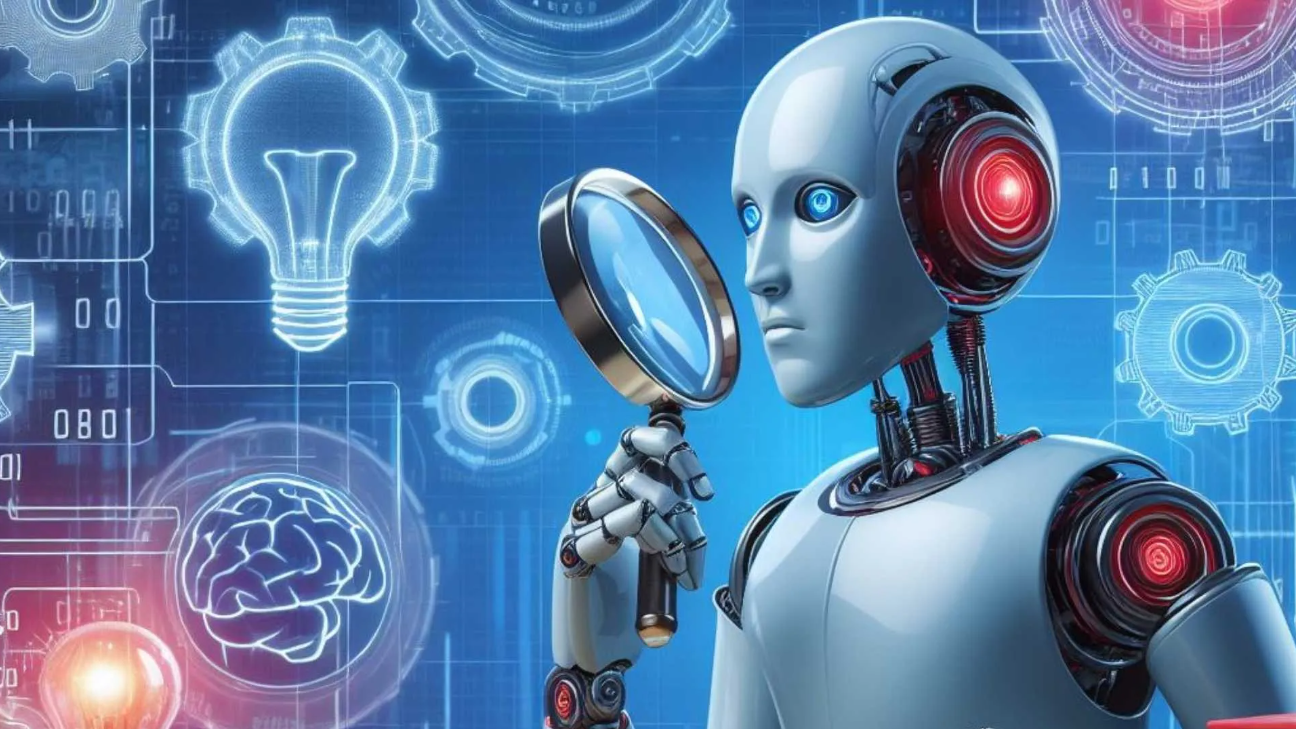About Artificial Intelligence:
Have you ever wish for a robot that cleans your house, a self-driving car, or even a brilliant assistant that answers all of your questions? And guess what? These are no longer just fantasies from innovational movies. Artificial Intelligence (AI) is slowly making these surprising things a reality.

But what completely is AI? Is it some kind of magic trick, or is there real science in back it? Don’t worry, we willl describe it in a simple and friendly way. So fix on your seat belt and get ready to dive into the interesting world of artificial intelligence!
What is Artificial Intelligence?
First, let’s explain the unsolved problem behind the term itself.
Artificial intelligence, refers to a machine’s ability to copy human logical functions such as learning and problem-solving. It is naturally the science of creating intelligent machines that can think and act like humans to some scale.
This doesn’t mean that robots will assume the world anytime soon (although it would make a good movie plot!). AI is not about creating conscious robots, it’s about programming machines to perform specific tasks intelligently. Think of it like train a very smart puppy to put on its panton. The puppy learns and picks within the programmed framework.
History of AI: Know where AI get start
The idea of AI has been all over for centuries, and philosophers and scientists have been study the idea of intelligent machines for many years. However, it wasn’t up till the mid-20th century that AI research really departed. With the development of powerful computers, scientists can finally start structure machines that can perform difficult calculations and learn algorithms.
The history of AI is full of exciting milestones. From the invention of the first chess computer in the 1950s to the growth of self-driving car technology today, AI has come a faraway. And guess what? The future looks even brighter as observer continue to push the boundaries of what’s possible.
Relieving Common Myths About AI:
With all the talk about AI, it’s certain that there will be doubt and even confusion. Let’s kit some of the most common false notion about AI:
1: Robots will take over the world! – Don’t worry, assassin fans! As we’ve said, AI is planned for specific tasks, not world rule. AI is very powerful, but still under human control.

2: AI is only for scientists and engineers. – Wrong! AI is already used in many everyday applications, from the voice assistants on your smartphone to the direction algorithms on your favorite streaming service.
3: AI is a threat to humanity – AI has the potential to be an unbelievable tool for good. It can help solve tricky problems like climate change and disease. But it’s important that we develop AI responsibly and fairly.
Different Types of Artificial Intelligence
The world of AI is as various as our favorite comic book superheroes. Here’s a crash of some of the main types of AI:
Narrow AI: Just Imagine a super smart player who be excellent at sports. Such a weak AI. It,s be brilliant at performing some special tasks like facial recognition software or spam filters.
Strong AI (General AI): This is a superhero with all the powers. However, general AI is still mostly theoretical. It would be a machine with human intelligence that can learn and picks for different situations.
Machine Learning: Think of machine learning as a superhero that’s continuously training and improving. This type of AI uses algorithms to learn from data and improve its performance over time.

Deep Learning: Deep learning is like a superhero with a mastermind. It uses tricky neural networks inspired by the human brain to process information and make intelligent decisions.
AI in Action : We use AI where we need
AI is no longer narrow to science fiction labs. It’s already being used in a diversity of ways to improve our lives. Here are some examples:
Healthcare: AI helps doctors more perfectly diagnose diseases, develop personalized treatment plans, and even power surgical robots.
Transportation: AI is transforming the way we get around, from self-driving cars, traffic management systems, and even independent delivery drones.
Entertainment: AI is generating the suggestion algorithms of your favorite streaming services, creating personalized playlists, and even composing music.
AI for all: We Use AI in our daily life
You may be surprised to learn that artificial intelligence is already a part of your everyday life. Here are a few ways artificial intelligence connects with you without you even knowing:
Your smartphone: From face unlock to voice assistants like Siri and Google Assistant, artificial intelligence makes your phone smart and easy to use.
Social media cues: Artificial intelligence algorithms keep track of your social media cues, showing you content you might like based on your previous interactions.
Internet shopping: Artificial intelligence recommendation engines suggest products you might be interested in based on your browsing history and purchasing behavior.

Email filtering: Spam filters that block unwanted emails often rely on artificial intelligence to identify and remove suspicious messages.
Weather forecasting: AI can help analyze complex weather data to create more accurate local weather forecasts.
These are just a few examples. As artificial intelligence continues to develop, we expect it to play an even greater role in our daily lives.
The future of AI: Can Make Easy Our Life
The future of AI is full of exciting possibilities. Here are some areas where we expect AI to make outstanding advances:
Personalized education: AI-powered instructor can adapt to an human learning style and provide a specialized learning experience.
Climate change solutions: AI can be used to study climate data, develop sustainable energy solutions, and Guess extreme weather.
Space exploration: AI-controlled robots can explore dangerous space environments and help in complex scientific missions.
Advances in robotics: We expect more smooth robots that can perform tricky tasks and assist people in a variety of industries.

However, alongside the potential benefits, there are also challenges to consider. As AI advances, social considerations related to AI angle, job losses due to automation, and ensuring responsible development are important points to take into account.
Create a Superior Future with AI :
The future of AI is the future of cooperation. Here’s how to use AI to create a superior future for everyone:
Education and Awareness: pile awareness about AI will make people more secure using the technology.
Ethical Development: Ensure that AI is developed and used impressively and has clear ethical instruction.
Lifelong learning: As AI continues to make progress, without a break learning and upskilling are serious to navigating the ever-changing job market.
Human-AI Interaction: We can tackle the power of humans and AI to achieve amazing results. Imagine a doctor using AI to diagnose and apply their expertness to patient care.
By encouraging collaboration and classifying responsible development, we can make sure that AI is a powerful tool for growth and positive change.
Imagine Become a Mini AI Mastermind:
AI may seem complex, but understanding the basics is a good step. Imagine you’re a student at an AI academy. You’ve learned the technical language, discovered different types of AI superheroes, and attend their impressive achievement in everyday life.
Here’s how to become a Mini AI Mastermind:
Explore AI Resources: There’s a hundreds of great online resources, articles, and even fun videos that explain AI concepts in a clear and charming way. Dive in and keep learning!
Challenge your perceptions: Don’t just accept everything you hear about AI. Research, ask questions, and form your own informed way of thinking.
Be an AI spotter: Next time you use your smartphone or come across a new technology, try to see the power contribution of AI behind it.
Share your AI knowledge: Talk to your friends and family about AI! Explain what you’ve learned and check any myths or the wrong idea.
Remember that AI is a journey, not a destination. As this absorbing field continues to make progress, stay strange and keep learning, and who knows, you might even inspire the next generation of AI creator.
And that’s it! From the building blocks of understanding to the thrilling possibilities of the future, we’ve investigate the amazing world of artificial intelligence. The future holds incredible potential, and with a motivating force of collaboration and a focus on responsible development, AI can be a powerful force for good.
Bonus section: What you need to know about AI and FAQs
interesting facts about AI:
The term “artificial intelligence” was first invented by John McCarthy in 1955 at a Dartmouth College workshop.
The game of chess was a most important milestone in the turn of events of AI. In 1997, IBM’s chess computer Deep Blue became the first machine to beat the current world chess champion, Garry Kasparov.
A computer program called AlphaGo, developed by DeepMind (a subsidiary of Alphabet), defeated the world Go champion Lee Sedol in 2016. Go is a multiplex strategy game that is thought to be even more difficult for an AI to master than chess.
Japan’s Fugaku, the world’s fastest supercomputer, is using AI for scientific research, drug discovery and climate carving.
AI-controlled robots are already being used across industries, from performing chiffony tasks to assembling cars on factory assembly lines.
So let’s answer some common questions about AI:
Can AI replace human jobs? AI automation has the capacity to transform the job market, but it could also create new opportunities. The focus will be on expertness that complement AI, such as creativity, critical thinking and problem-solving.
Is AI a threat to humanity? AI is a tool and, like any tool, it can be used for good or bad purposes. answerable development and clear pure guidelines are basic for AI to benefit humanity.
Will AI become sentient or conscious? This is a topic of science alternative fact debate and research, but current AI does not have human consciousness or perception.
Can I learn AI? In any case! There are many online courses, tutorials, and even educational games that can introduce you to the basics of AI and machine learning.
Conclusion:
Artificial intelligence is a speedily developing field with huge potential. It’s not a scary innovational monster, but a powerful tool with the potential to improve our lives in infinite numbers of ways. As AI continues to make progress, we must remember that it’s up to us to guide its path and confirm that it benefits all of humanity.
So the next time you interact with your smartphone assistant or see a sample of a self-driving car, remember that AI is no longer just science fiction. It’s part of our present and will body our future in exciting ways.
